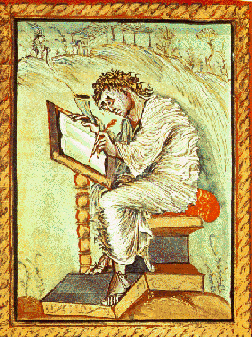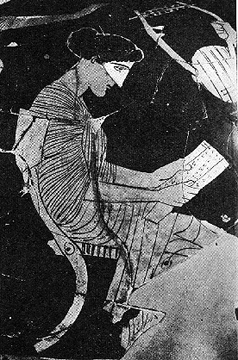The Faculty of Classics is home to a project for a new Ancient Greek-English Lexicon in two volumes (approximately 1500 pages in all), covering the most widely read ancient literary texts, from Homer to the Hellenistic poets, the later historians, and the New Testament Gospels and Acts of the Apostles.
It is aimed primarily at students, but contains much that will be of interest to scholars.
The work has been in progress for more than 20 years under the editorship of Professor James Diggle and is to be published by Cambridge University Press.
Each entry has been written after a reading of the passages in which the headword occurs, without reliance on information in existing dictionaries, with the result that there are many fresh interpretations and insights.
There is a strong focus on identification of sense distinctions and a detailed description of them, as opposed to an older methodology in ancient Greek dictionaries where general catch-all single word translations were used, along with a bias in the presentation towards the highlighting of syntactic information, which in practice tends to override somewhat unsubtly the divisions of sense.
Appreciation of the meaning of Greek words has been hampered to some extent by the nineteenth-century English of earlier dictionaries, which often gets carried through into textbooks and translations. In this lexicon, current English has been used, with great care taken to match the ancient senses with a modern way of expressing them. As a further aid to sharpening understanding, a wide range of contextual information has been included, for instance, the kinds of subjects and objects which occur with a given verb, or the semantic range of nouns that an adjective can qualify.
 A particular feature of the Lexicon is that the re-examination of the ancient passages has gone hand in hand with application of skilled textual scholarship. Obsolete readings have been discarded, along with interpretations which can no longer be defended.
A particular feature of the Lexicon is that the re-examination of the ancient passages has gone hand in hand with application of skilled textual scholarship. Obsolete readings have been discarded, along with interpretations which can no longer be defended.
The extensive reading of texts would have been prohibitively time-consuming had it not been for the digital resources provided by Thesaurus Linguae Graecae and a database created specifically for the lexicon by Jeffrey Rydberg-Cox of the University of Missouri at Kansas City, in collaboration with the Perseus Digital Library.
To see a sample typeset page of the Lexicon, please click here.
For more information on the Lexicon and its innovative methodology, please see the links on the left-hand side of this page.
Next Page: History and Personnel of the Lexicon
